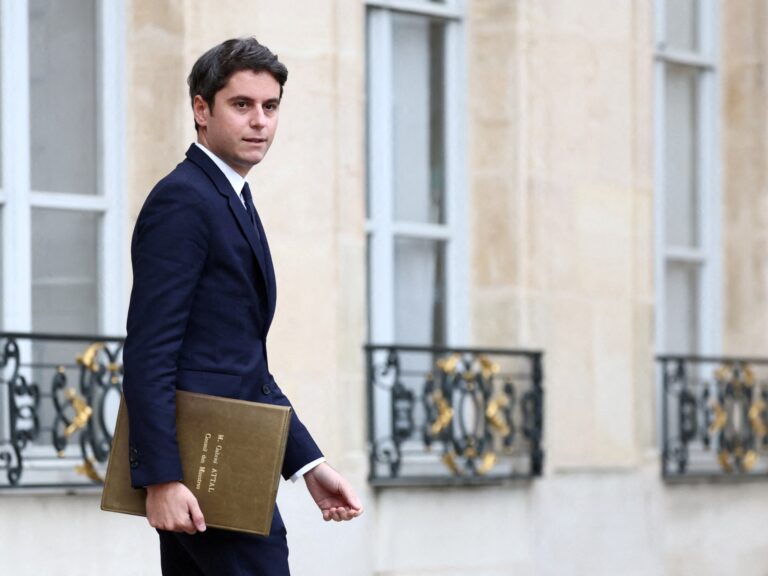President Emmanuel Macron has accepted Prime Minister Gabriel Attal’s resignation but asked him to stay on as caretaker prime minister.
French President Emmanuel Macron has accepted the resignation of Prime Minister Gabriel Attal’s government, which will now be led by a caretaker government, the Elysee Palace announced.
The palace said in a statement on Tuesday that it would “handle day-to-day operations until a new government is appointed.”
Macron’s centrist Ensemble coalition was defeated in parliamentary elections earlier this month by the New Popular Front (NFP), a broad coalition of left-wing and environmental parties.
The vote means that for the first time in the history of the modern French Republic, there is no dominant political force in the National Assembly, and no alliance or coalition government between parties has yet been formed.
Until a government is formed, Atal’s caretaker government will handle current affairs in the euro zone’s second-largest economy, including making sure the Olympics, which open on July 26, run smoothly.
The caretaker government cannot introduce new laws or make major changes to Parliament.
“Responding to current events means implementing measures already decided upon and managing emergencies as they arise – nothing more, nothing less,” Matthieu Disant, a law professor at the Panthéon-Sorbonne University in Paris 1, told Reuters.
“The outgoing government is stripped of all its powers. This completely, and quite logically, removes any room for political maneuver.”
France has had caretaker governments before, but none have lasted more than a few days. There is no limit to how long a caretaker government can stay in power, and parliament cannot force them to step down.
Attal, 34, was appointed France’s prime minister in January. He has risen to prominence during the COVID-19 pandemic and served as France’s education minister before becoming prime minister.
One of his first acts as education minister was to ban the wearing of the Muslim dress known as the abaya in public schools, a move that proved popular among France’s conservatives.

